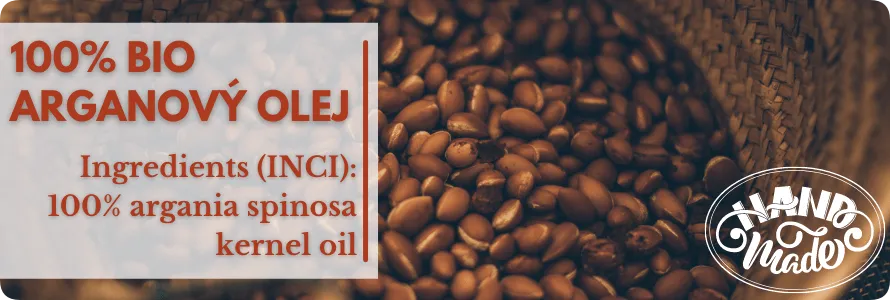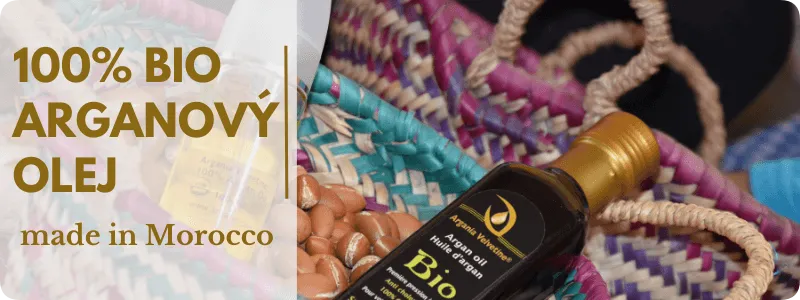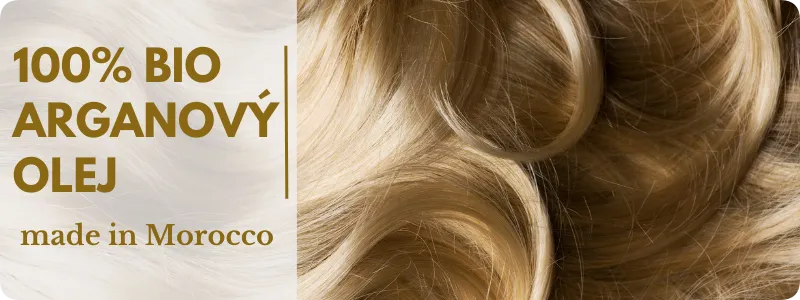Quality and price of argan oil directly from Morocco
Factors influencing the quality and price of argan oil
The tree Argania spinosa, from which natural argan oil for food and cosmetic argan oil is produced, grows only in the southwestern part of Morocco.
The tree is on the list of plants protected by UNESCO. Due to the fact that there is a decrease in the total area on which the trees grow, the total volume of production of argan oil is only 4 million liters per year.
Several factors affect the quality of argan oil:
1/ In what location does the argania spinosa tree grow (does the soil not contain foreign substances, heavy
metals...)
2/ Do the fruits come into contact with animals (argan nut is an excellent delicacy
for goats that eat the green skin and the fruit subsequently passes through the digestive tract
animals, which can cause various infections)
3/ Oil production technology:
- Manual cold pressing - time-consuming, very laborious, but from the point of view
oil quality, the most economical production technology – the production of 1 liter of oil takes several days –
oil of the highest quality
- Machine pressing - production of 1 liter of oil takes only a few hours - high quality oil
- By chemical extraction - the oil is absorbed from the nut by chemical substances - the lowest quality of argan oil
Depending on the production technology, the production of 1 liter of argan oil takes several hours to several days.
4/ How long are the kernels exposed to oxidation - Berber women laboriously pound argan nuts,
from which they obtain kernels. How long it takes from core cleaning to pressing is
one of the basic factors of oil quality. The longer the kernel is stored, the more it is
exposed to atmospheric oxygen (oxidation), resulting in lower quality
of the resulting product.
Companies that produce oil by machine pressing or chemical extraction (or
by both methods), they consume large volumes of base material in the production process
raw materials. In order for the production process not to be interrupted, they must keep enough cores in stock
supplies, which exposes them to long-term oxidation by atmospheric oxygen.
In addition, due to the fact that cleaning the cores is laborious and time-consuming, it is common that
manufacturers, purchase cores from external suppliers. In that case it is very difficult
trace the storage period of the cores and from which location they come.
5/ Packaging - Consumer packaging mainly in glass containers (edible oil only
in dark bottles, preventing the transmission of light).
As a rule, replacement packages are also supplied in plastic packaging, but only with the appropriate ones
certificates certifying the suitability of use for packaging food products.
Quality oil is packaged only in certified packaging from renowned manufacturers
(cheap packaging without certificates may contain substances harmful to health)
6/ Storage – the goods must be stored in a suitable place (preferably a dark room
without direct access to sunlight).
The enormous increase in interest in argan oil in the last decade has led to producers trying to increase their production in an effort to meet market demand. However, this is limited by the limited area on which the Argania Spinosa tree grows. More and more oil is obtained by machine pressing, or chemical extraction. In order to rid argan oil of its characteristic pungent smell, manufacturers often heat treat it. According to experts, heat treatment is "the killer of the quality of argan oil". Such argan oil is cheaply sold in barrels and then poured into consumer packaging. Oxidation associated with overflow also reduces the quality of the oil.
Moreover, many so-called "traders" resort to dishonest practices. Argan oil is diluted with inferior oils. Such oil, sold under the brand name of argan oil, does not have the effects declared on the packaging, it can even be harmful and cause potential health complications. It is sad that this kind of oil also reaches Europe illegally.
Our supplier is a family business that has a precisely organized production of argan oil. Each step of the production process is personally controlled by one of the family members. The locations where the Argania Spinosa tree grows are fenced, which prevents goats from accessing the trees. The argan kernels are sorted immediately after cleaning and then cold-pressed to prevent oxidation by atmospheric oxygen. The oil is filtered several times to obtain the desired clarity. Glass bottles with appropriate certificates are used for packaging. Larger volumes are filled in plastic packaging with certificates certifying suitability for use in the food industry.
The oil is produced to order, which means it is delivered fresh after pressing. This is a real extra virgin, 100% organic organic product, produced without chemical additives and heat treatment.
The reliability of the manufacturer is also evidenced by the fact that it delivers goods all over the world, for example: EU countries, USA, Canada, Japan, Australia, New Zealand, Brazil, China, India, Saudi Arabia....... In each of these countries the oil must undergo laboratory analyzes before being put on the market.
Similarly, our company must also ensure the relevant controls and laboratory analyzes before putting argan oil on the market, where the declared values of active substances and also the fact that the product does not contain harmful substances are confirmed. Only on the basis of laboratory analyses, the control authorities issue an instruction to the relevant customs office to release argan oil into circulation on the internal and EU markets. In addition, the oil must be stored in a warehouse meeting the prescribed parameters.
Every importer must be registered and comply with the parameters established by law. For example as for food-grade argan oil, only a few companies are approved in Europe and are authorized to supply this oil.
WE RECOMMEND:
Consume only cold-pressed argan oil, not thermally processed, not exposed to long-term exposure to sunlight or air oxygen!!!
Signs of quality argan oil:
1/ Smell:
Argan oil with an unpleasant sharp smell was made from kernels that probably passed through the digestive tract of goats - it can contain various infections and probably few people would want to use such oil on their skin.
On the other hand, unscented argan oil is highly suspect. It can be diluted or machine-made. Its typical delicate aroma was probably removed by heat treatment, the so-called deodorization (the oil is heated to high temperatures up to 200 °C for 30-60 minutes), which is one of the most destructive interventions in oil quality. Pure, unheated argan oil has a special smell. Not everyone likes it at first. The important thing is that after application it is quickly absorbed, the smell disappears and the skin feels the almost miraculous effects of argan oil.
2/ Structure, appearance:
Real argan oil has a soft, velvety - silky appearance. When applied to the skin, it does not feel slimy, sticky, or watery. It must not burn or itch. It has a calming effect, is quickly absorbed and does not leave a greasy feeling.
3/ Packaging:
High-quality argan oil in consumer packaging (e.g. 30, 50, 100, 250 ml) is packaged by every serious manufacturer in glass bottles. Food-grade oil must be packed in dark bottles to prevent light from passing through the transparent glass and subsequently reducing the quality of the oil.
4/ Sediment:
Genuine argan oil may have a fine sediment at the bottom that looks like sludge. It is a sign of an organic product (similar to the sediment at the bottom of apple juice). The oil can be freed of deposits by multiple filtering.
5/ Price:
The production of high-quality pure argan oil requires time, effort and consumption of raw materials. For illustration, one tree yields approx. 30 kg of fruit, which is enough to press 1 kg of 100% argan oil. Annual oil production is limited by the limited area on which Argania Spinosa trees grow (approx. 4 million liters per year). These factors are also reflected in the higher purchase price of argan oil.
As the popularity of argan oil grows, so does the number of sellers. They all claim to offer "pure argan oil". However, the prices are very different. It is clear that real pure, unheated, virgin argan oil, cold pressed, cannot be cheap (e.g. 100ml for 10-20 EUR). .
In this case, the proverb is appropriate:
"I'm not rich enough to buy cheap stuff"
A few extra euros for pure, natural, undiluted, unheated argan oil will pay off in lower consumption and, above all, in amazing effects on the skin and health.
Finally, we have enough experience with the use of "cheap products" (e.g. salt from Poland, meat products with modified guarantees from Hungary, punched alcohol from the Czech Republic.........).






